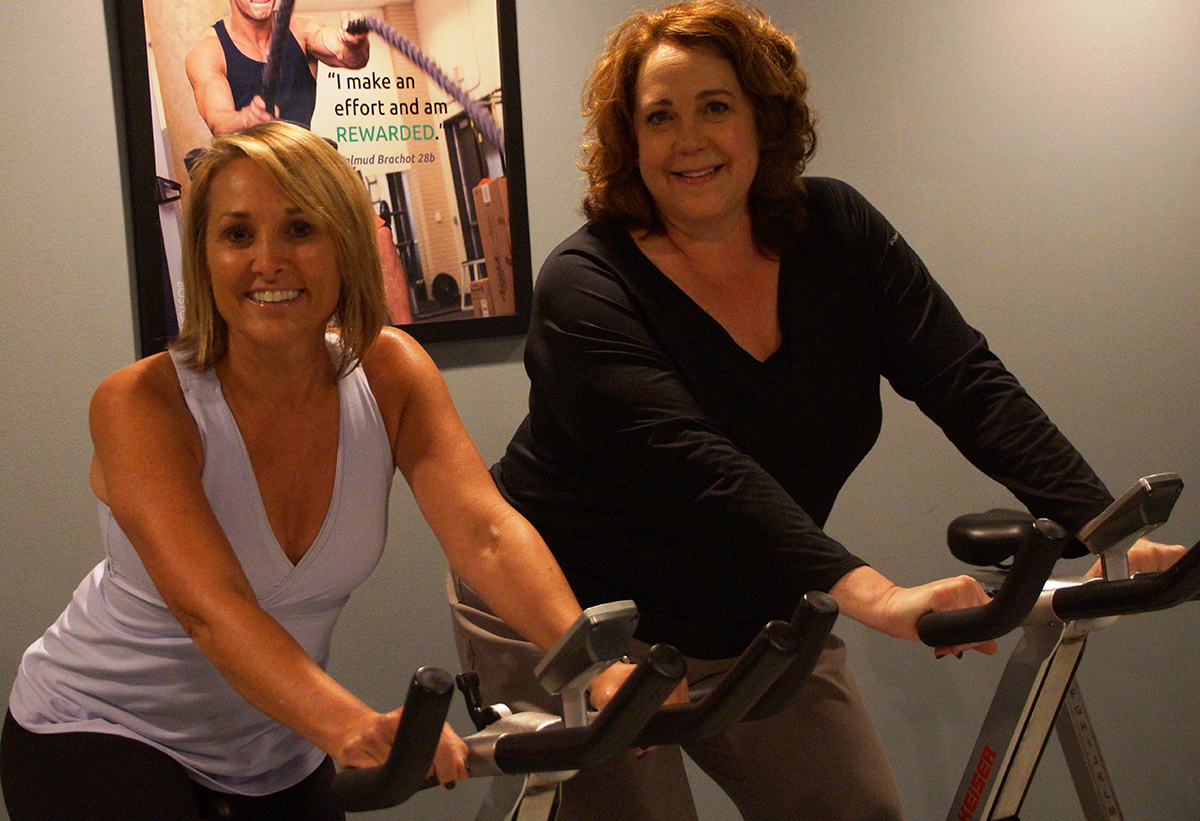Parkinson’s Patients Pedal Toward Progress at the JCC

Edwards, left, and Rabinovitz/Photo provided
On Monday mornings, Newton’s Jewish Community Center (JCC) offers a cycling class that looks like any other. But there’s more to this class than meets the eye: Each of its students has early-stage Parkinson’s disease, a neurological condition that impairs movement and function.
For many students, walking has already begun to get difficult. Something about getting on a bike, however, makes all of that go away, even if only for 45 minutes.
“If you would see the participants walking into the class, it would not look like a typical Spin class. [But] the minute they get on the bikes, their posture and their form is perfect, and they’re riding,” says Audrey Edwards, one of the instructors. “[We] have a goal that when people come in here to take any of our fitness programming, they leave their Parkinson’s in the parking lot.”
Karen Sauer, one of the class’ participants, says it’s exceeded all of her expectations. She says it keeps her sharp, pushes her to work hard, and even makes her a better hiker, an activity she loves.
“I thought a cycling class would be horrible,” she laughs. “I do the exercise classes to preserve my function, so I thought I’d give it a try, and I liked it a lot.”
The JCC offers a wide range of fitness programming for both the general public and the Parkinson’s community, the latter made possible by a grant from the National Parkinson’s Foundation and a partnership with Beth Israel Deaconess Medical Center. The JCC is the only Boston-area institution to offer such classes.
The program, which also includes offerings such as Nia and chair yoga, is based on the knowledge that exercise can ease the disease’s effects. Instructor Holly Rabinovitz says cycling, in particular, can help patients improve by leaps and bounds.
“It’s movement, it’s motion, it’s keeping them fluid and moving,” she says. “They have found through studies that the movement of the constant cadence at a certain rate for an extended period of time helps with their brain activity and to keep things fluid in the brain.”
Anecdotally, Edwards and Rabinovitz say they’ve seen tremendous progress in their students, both mentally and physically. Sauer can speak to that first-hand.
“Holly pushes me harder than I would be pushed. I found I could do more than I thought,” Sauer says. “I’m happy if I maintain what I have. I know exercise helps me, not just mentally, but it helps me maintain my function.”
The class has also touched Edwards and Rabinovitz, both of whom have been fitness professionals for decades.
“[As an instructor], you know you’re making an impact on people’s lives,” Rabinovitz says. “But when you can see immediate effects from the beginning of a class to the end of a class, it’s pretty powerful.”
If you’re interested in the JCC’s Parkinson’s programming, visit bostonjcc.org.


